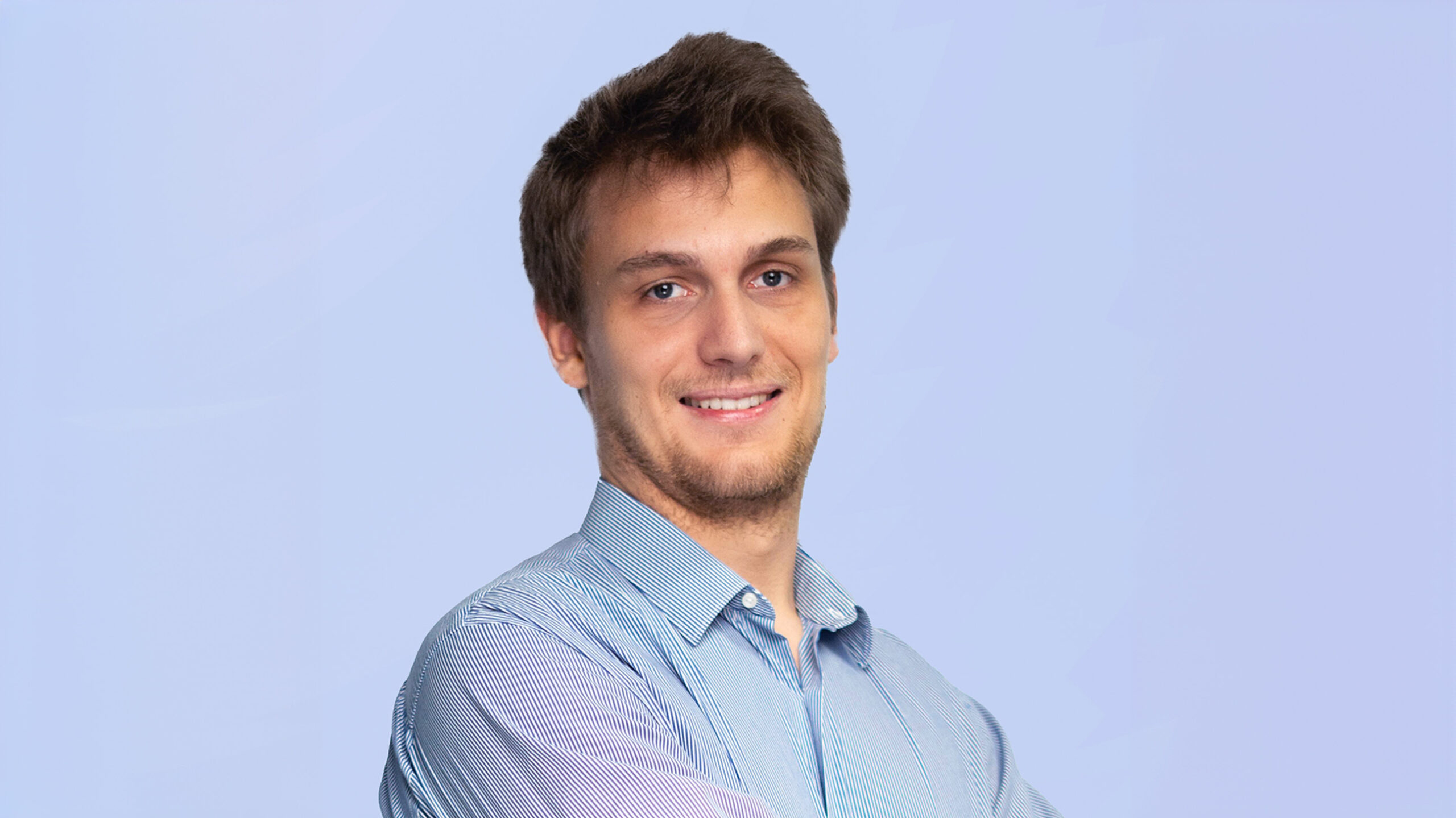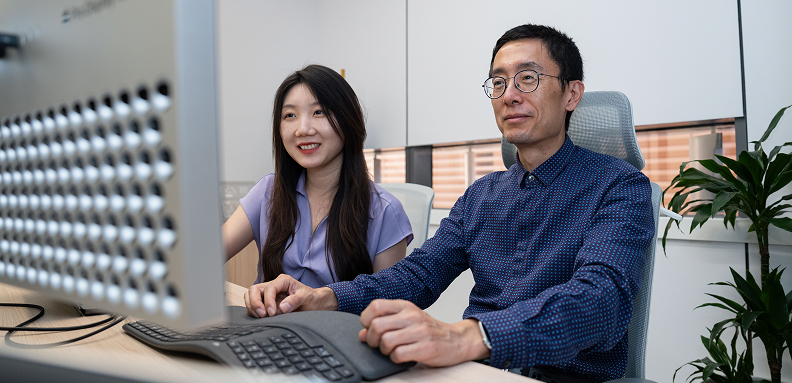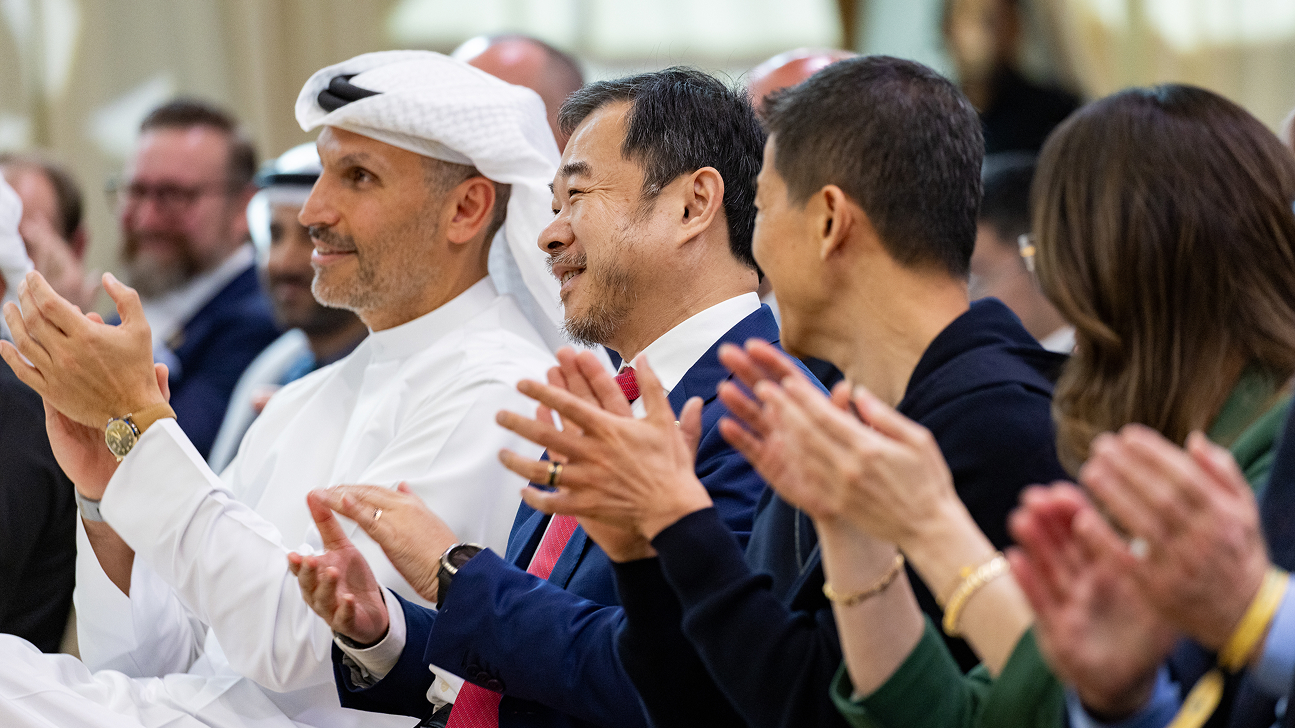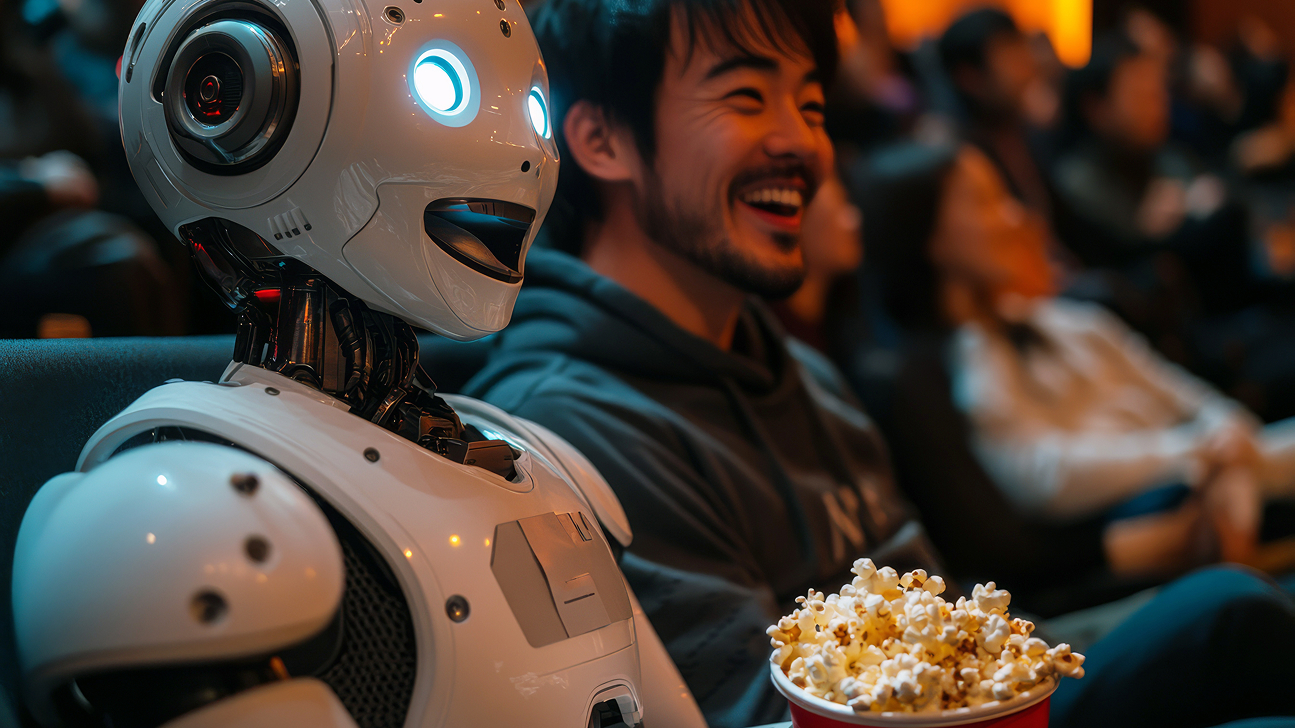Developing efficient algorithms to spread the benefits of AI
Tuesday, June 04, 2024

AI is often hailed for its potential to revolutionize sectors including healthcare, energy, logistics, security, education and many others. But as the technology becomes more ubiquitous, a subset of challenges related to its deployment are becoming more apparent.
Consider the energy required to power AI, the expense and scarcity of chips, and the fact that both of these could place constraints on the ability of AI to do its job properly; especially for users in remote locations such as medical professionals or search and rescue teams using devices with limited data and power supply.
These challenges can be addressed by enabling AI to work from far smaller data sets than are typically used: An area of research that William de Vazelhes, a French national who is graduating from Mohamed bin Zayed University of Artificial Intelligence (MBZUAI) with a Ph.D. in machine learning, has been engaged in since he joined the university in 2021.
Vazelhes previously studied engineering at the renowned Paris-Saclay University, where he gained the equivalent of an M.Sc. in data science. He then worked as a research engineer at Inria, a research organization in France, before deciding to do a Ph.D. Vazelhes applied to MBZUAI after visiting the UAE for a vacation with his wife, who is also a data scientist.
“My wife and I visited Dubai and liked the energy and vibe. It was then that I discovered MBZUAI. I did some reading about the institution and was impressed by the serious research work in their papers, so I decided to apply,” he said.
Vazelhes’s research at MBZUAI focused on optimization algorithms, which is the mechanism through which machine learning models learn from training data. In particular, he has been researching a special type of algorithms called hard-thresholding algorithms, which enable AI to simplify and focus on the most critical information, making data easier to analyze and work with.
“Comparing this approach with other optimization methods, we demonstrated that despite being from a class of algorithms usually hard to analyze (so-called non-convex algorithms), we can actually obtain results similar to those of algorithms easier to analyze (so-called convex algorithms) in many usual settings,” he said. “This approach is useful for energy-saving and deploying AI models on low-memory devices and enhancing machine learning efficiency.”
These algorithms have many potential applications in a diverse range of sectors. For example, Vazelhes envisages portfolio managers using solutions built on this technology to help remove noise from data, allowing them to better understand market shifts and make more informed investment decisions. Hard-thresholding algorithms are particularly useful when asset managers have budgetary constraints on the number of assets they can invest in, as these algorithms offer a far more efficient way of using AI to help manage the portfolio, Vazelhes explained.
Hard-thresholding algorithms could also bring significant benefits to healthcare services in remote areas where there is limited access to computing resources. This could be applicable in instances where healthcare professionals are using portable devices such as ultrasound scanners or mobile devices to access patient healthcare records.
“If a medical image classification algorithm uses a sparse machine learning model, it will need to make fewer computations than with a dense model to obtain results, saving valuable computing resources and energy, while attaining quicker results,” Vazelhes said.
For portable ultrasounds scans, compressed sensing can also help to reduce the number of measurements needed to obtain a good quality image, which can in turn make it possible to reduce the transducer size and make the devices more portable while ensuring good image quality, according to Vazelhes. In radiation therapy for cancer, sparse optimization can help to find the best angles to radiate a tumor, which leads to reduced energy consumption, and less radiation risk for the patient.
The Ph.D. research also brought its share of challenges. As a new area of research, there were times when Vazelhes invested significant amounts of time conducting experiments that could have turned out to be blind alleys.
“The main challenge in my research was exploring new territory,” he said. “Unlike B.Sc. and M.Sc. work where answers are often already known, Ph.D. research tends to involve venturing into the unfamiliar. Uncertainty surrounds the feasibility of the objectives, and there’s a constant need for testing and experimentation. But despite the uncertainty, I’ve achieved some significant breakthroughs.”
Among these breakthroughs, one notable result from Vazelhes’s research involved extending the hard-thresholding algorithm to the zeroth-order setting, or simplest form of the algorithm, where the gradient of the function is inaccessible. In optimization scenarios, including when privacy constraints restrict access to data and the gradient accessibility is limited, this approach proves valuable. It’s a departure from the typical reliance on gradients in optimization algorithms, showcasing their potential in various practical applications which could extend to other areas, including improving the efficiency of LLMs.
Vazelhes praised MBZUAI’s caliber of teaching and academic support, in addition to the facilities and support services, which contributed to his positive experience at the university. “The university is dedicated to ensuring the wellbeing of students and ensuring they enjoy their time at the university, in addition to giving them all the necessary tools to progress academically,” he said. “Professors at MBZUAI are exceptional, offering some of the best courses I’ve ever done. The diversity among students from around the world also creates a fantastic camaraderie, fostering a collaborative environment.”
Post-graduation, Vazelhes is keen to explore opportunities in industry in the UAE.
“The great thing about MBZUAI is that the tutors encourage students at M.Sc. and Ph.D. level to focus on projects with the potential to bring about solutions to real world challenges. Long term, I’d like to help develop and deploy AI solutions that bring about positive changes in the world,” he said.
Related
Not just another deck: how MBZUAI’s okkslides is redefining executive communication
The MBZUAI startup is turning messy research and organizational context into decision-ready narratives with a human-in-the-loop AI.....
Read MoreMBZUAI marks five years of pioneering AI excellence with anniversary ceremony and weeklong celebrations
The celebrations were held under the theme “Pioneering Tomorrow: AI, Science and Humanity,” and featured events, lectures,.....
- students ,
- celebration ,
- five year anniversary ,
- ceremony ,
- event ,
- board of trustees ,
- campus ,
- faculty ,
AI and the silver screen: how cinema has imagined intelligent machines
Movies have given audiences countless visions of how artificial intelligence might affect our lives. Here are some.....
- cinema ,
- art ,
- fiction ,
- AI ,
- artificial intelligence ,
- science fiction ,


